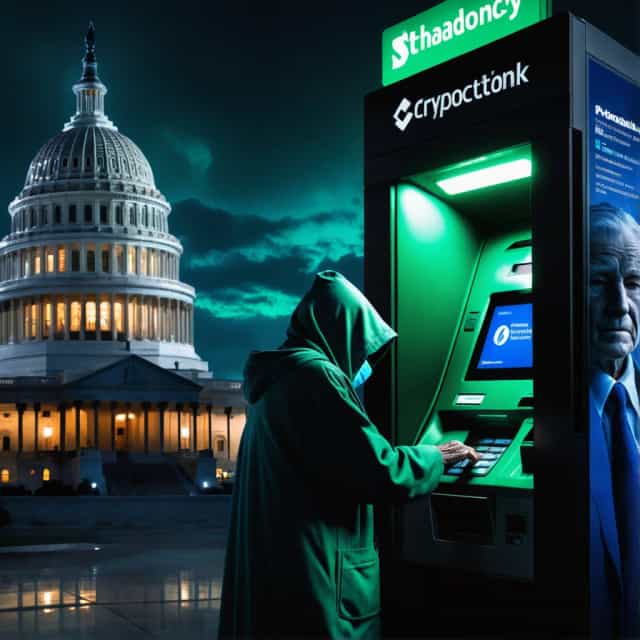
출처: Block Media
KOSPI Eases as Powell's Inflation Remarks Curb Investor Appetite
The KOSPI, South Korea's primary stock index, has slipped amid cooling market sentiment following Federal Reserve Chairman Jerome Powell's latest commentary on inflation risks. After a previous rally driven by foreign investments, selling pressure has now taken the lead, influencing the index’s trajectory.
As of 9:20 a.m. KST, the KOSPI was trading at 3,461.10, down 11.04 points or 0.32% from the prior session's close of 3,472.14. The index opened with a sharper decline of 13.16 points (0.38%), hitting 3,458.98.
Fed Signals Upside Risks for Inflation and Implications for Growth
During a speech at the Rhode Island Chamber of Commerce, Powell struck a balanced but cautious tone, noting, “Short-term inflation risks lean toward the upside, while employment risks tilt downward.” This nuanced positioning emphasized uncertainties in combating inflation and stabilizing labor markets, leading to speculation that aggressive rate cuts may remain off the table.
The speech had a dampening effect on Wall Street equities for the second consecutive session, casting its shadow on South Korea's markets as investors reassess risk exposure.
Market Analysts Weigh In on Powell’s Sentiment
Han Ji-young, a researcher at Kiwoom Securities, explained the ripple effects by stating, “U.S. markets continued to show fragile price movements yesterday. While no major macroeconomic data were disclosed, Powell's previous suggestion of equity overvaluation appears to have heightened skepticism about current valuations.”
However, Han noted that the market retracement remains mild in scale: “The slight pullback primarily reflects investor fatigue from the prolonged rally, with Powell’s remarks serving as a convenient trigger rather than a fundamental shift in outlook.”
Foreign and Institutional Investors Drive Selling Activity
In the KOSPI market, domestic individual investors emerged as net buyers, purchasing equities worth 1.52 trillion won. Meanwhile, foreign investors sold off 873 billion won, and institutions offloaded an additional 596 billion won, applying downward pressure on the index.
Sector and Stock Performance
Market gains were limited to select sectors, such as transportation equipment and parts (0.88%), retail (0.01%), and IT (0.17%). However, notable losses occurred in precision medical instruments (-0.84%), utilities (-1.89%), and construction (-1.40%).
Among heavyweight stocks, performance was mixed:
- Gainers: LG Energy Solution rose 1.01%, Hanwha Aerospace surged 2.93%, and HD Hyundai Heavy Industries climbed 2.69%.
- Losers: Samsung Electronics fell 0.88%, SK Hynix dropped 1.54%, and Samsung Biologics slipped 1.34%. Automaker Hyundai Motor also declined 0.46%.
KOSDAQ Declines as Small-Cap Stocks Show Mixed Momentum
The tech-heavy KOSDAQ index also reflected bearish sentiment, dropping 4.23 points (0.49%) to 856.71. Starting the session at 858.45, the index opened lower by 2.49 points (0.29%) from the previous day's close of 860.94.
Retail investors were net buyers, securing 669 billion won in KOSDAQ shares, while foreign and institutional investors sold off 394 billion won and 170 billion won, respectively.
Sector-Wise KOSDAQ Activity
The KOSDAQ saw gains in metals (0.48%), precision medical instruments (0.49%), and transportation equipment and parts (1.28%). Conversely, machinery (-0.45%), electrical/electronics (-0.55%), and other manufacturing (-0.11%) lagged.
Leading stocks demonstrated divergent performance:
- Advancers: EcoPro BM and EcoPro rose 1.74% and 1.24%, respectively, while RainBow Robotics soared 6.98%.
- Decliners: PharmaResearch lost 1.23%, ABL Bio dropped 1.52%, Peptone fell 1.72%, and Samchundang Pharm declined 0.63%.
South Korean Won Weakens Amid External Pressures
In the Seoul foreign exchange market, the won/dollar exchange rate rose by 5.5 won, with the Korean won trading at 1,403.0 per U.S. dollar, up from the previous session’s close of 1,397.5.
The currency’s continued depreciation reflects heightened global economic uncertainty and complex interactions between domestic liquidity flows and international indicators.
Outlook
As markets digest Powell’s commentary and assess its long-term effects, investor sentiment remains cautious. The KOSPI’s recent downswing underscores the growing sensitivity to external cues, while foreign and institutional selling adds to short-term volatility. With heightened attention on global macroeconomic developments, both the stock market and the South Korean won will likely continue navigating a choppy environment in the sessions ahead.










